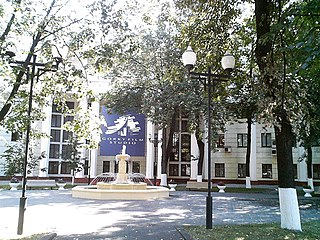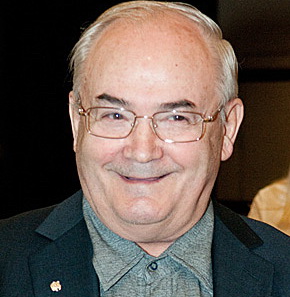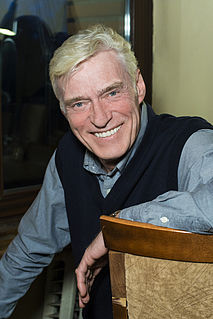Boris Buneev | |
|---|---|
| Born | August 11, 1921 |
| Died | September 1, 2015 (age 94) |
| Nationality | USSR |
| Occupation | Director |
| Awards | Merited Artist of the Russian Federation (1973) USSR State Prize (1974) |
Boris Buneev (1921-2015) was a Soviet film director. He was awarded the title of Merited Artist of the Russian Federation in 1973 [1] , and won the USSR State Prize in 1974 for the film "The Last Meeting".

The Soviet Union, officially the Union of Soviet Socialist Republics (USSR), was a federal sovereign state in northern Eurasia that existed from 1922 to 1991. Nominally a union of multiple national Soviet republics, its government and economy were highly centralized. The country was a one-party state, governed by the Communist Party with Moscow as its capital in its largest republic, the Russian Soviet Federative Socialist Republic. Other major urban centers were Leningrad, Kiev, Minsk, Tashkent, Alma-Ata, and Novosibirsk. It spanned over 10,000 kilometers (6,200 mi) east to west across 11 time zones, and over 7,200 kilometers (4,500 mi) north to south. It had five climate zones: tundra, taiga, steppes, desert and mountains.
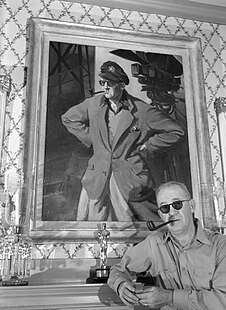
A film director is a person who directs the making of a film. A film director controls a film's artistic and dramatic aspects and visualizes the screenplay while guiding the technical crew and actors in the fulfilment of that vision. The director has a key role in choosing the cast members, production design, and the creative aspects of filmmaking. Under European Union law, the director is viewed as the author of the film.
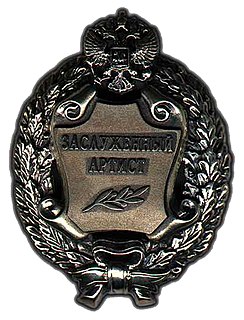
Merited Artist is an honorary title in the Soviet Union, Russian Federation, Union republics, and Autonomous republics, also in some other Eastern bloc states, as well as in a number of post-Soviet states.



